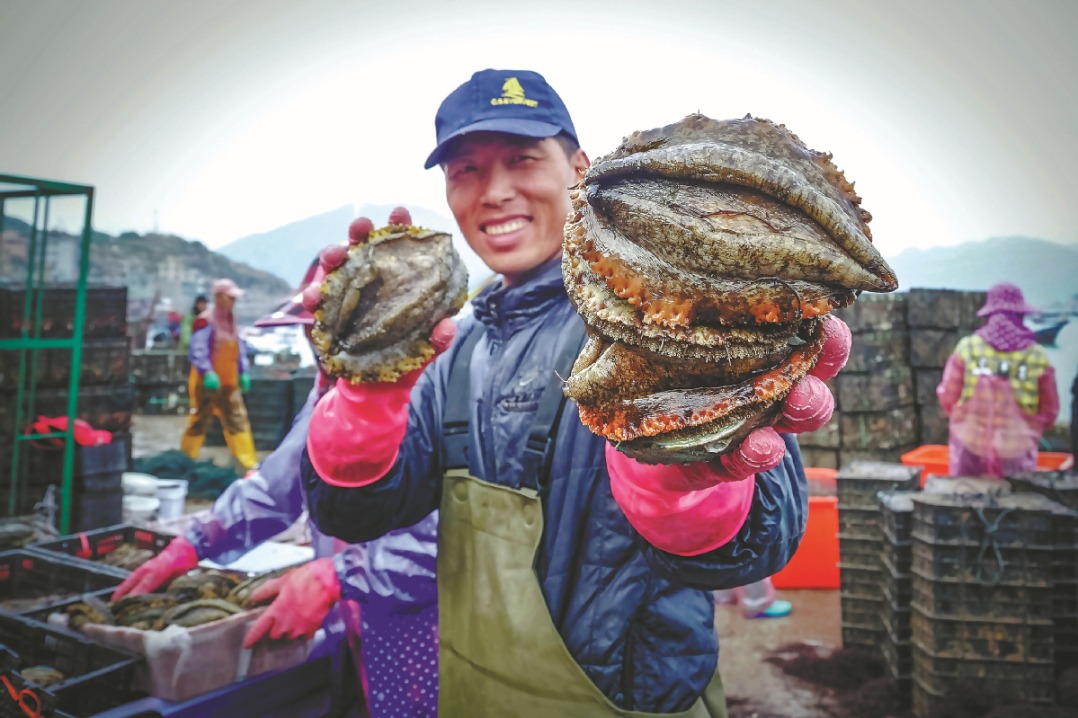Filipinos speak out against Japan's move
By PRIME SARMIENTO in Hong Kong | China Daily | Updated: 2023-06-20 07:09

Concern aired over plan to dump toxic water, Manila urged to issue statement
Filipino fishermen, and consumer rights and environmentalist groups have opposed Japan's plan to dump 1.25 million tons of nuclear-contaminated water from a crippled nuclear power plant, warning that this move threatens food security, human health and the livelihood of millions of Filipinos.
Leaders of these groups have also urged the Philippine government, which is yet to issue a statement on the planned discharge, to oppose Japan's plan. They issued this statement at a hybrid forum held in Manila on June 19. The forum is organized and moderated by Wilson Lee Flores, a business leader and newspaper columnist.
They have likewise expressed solidarity with other fishermen and civic organizations opposing Japan's plan, noting this plan can only be stopped through a united front.
On June 12, the Tokyo Electric Power Company, or TEPCO, operator of the Fukushima Daiichi Nuclear Power Plant, started testing the equipment to discharge wastewater from the plant into the Pacific. This came despite ongoing opposition from experts, civic groups, and fishery organizations in Japan, South Korea and Pacific Island countries.
According to Japanese media, a report recently released by TEPCO shows that the radioactive element Cs-137 in black rockfish caught in the harbor of the Fukushima nuclear plant in May far exceeded safety levels, reaching 18,000 Bq/kg, 180 times that of the standard maximum stipulated in Japan's food safety law.
Veronica Cabe, coordinator of the Nuclear and Coal-Free Bataan Movement, has urged the Philippine government to join other Pacific Island countries in the demand to stop the Japanese government and TEPCO from discharging contaminated water into the ocean and make TEPCO accountable for its waste. Cabe said that polluting the Pacific Ocean will also harm future generations.
"We belong to one Pacific Ocean. We are all fishermen and fish is our main source of protein," she said.
Ronnel Arambulo, national spokesperson of the Federation of Small Fisherfolk Organizations in the Philippines (Pamalakaya), said the contamination of the Pacific Ocean will not only destroy the Philippines' rich marine sources but will also displace small fishermen who depend on the ocean for their livelihood.
He said what happened in Fukushima may also serve as a warning to the Philippine government which is planning to develop nuclear as an alternative source of energy.
Ensuring sustainability
Pablo Rosales, national chairperson of the Coalition of Fishermen's Associations, said it's the fishermen's responsibility to ensure that marine resources are sustainable to provide a sustainable food supply to all people. "We are not just fishing for our family but for the people. They need fish as a source of protein," Rosales said.
He said the Philippines is already having problems with overfishing. Rosales urged the government and the Filipino people to stop the planned disposal of toxic wastewater.
"This is Japan's problem," Rosales said, adding that since Japan decided to use nuclear power, it's also their responsibility to find a way to dispose of the waste and not at the expense of fishermen and the marine environment.
The Philippines is an archipelago that is made up of 7,107 islands and its vast oceans and seas have made the fisheries sector one of the key industries in the Southeast Asian nation. The Philippines is one of the world's biggest fish producers, and its fishing and aquaculture industry employs about 2 million Filipinos.
Fish, like rice, is also a staple in the Philippines. This is why contaminating the ocean can also harm the health of Filipino consumers.
Rodolfo Javellana Jr, president of the United Filipino Consumers and Commuters, said contaminating the ocean will lead to more health problems. Javellana said instead of dumping wastewater into the ocean, TEPCO should consider allotting space in Japan where it can safely dump its waste.























